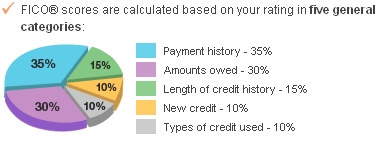I constantly receive requests for a No Cost loan. Sadly there is no such thing.
All loans have closing costs associated with putting the loan together.
Just like you, participants in the mortgage loan process don’t work for free. The Appraiser, Title Officer, Title Insurance, County Recording Fees, Minnesota Mortgage Registration Tax, as well as your lender all need to get paid as part of the process.
Each of these parties charge fees for their service in processing and funding your loan. The Lender’s responsibility is to explain to you what the services and costs are, and to give you an estimate of the total costs when you apply for a loan. This estimate comes in the form of a document titled Good Faith Estimate of Closing Costs. It is only an estimate, but it should be very close to your actual costs. Lenders are not allowed to pad, or add onto the costs charged by these other parties, but rather simply pass on what they charge. The vast majority of closing costs go to third parties, not your actual lender.
The real question is: How do I get a loan so I don’t have to pay for these required services? The simple answer is you can’t. What you can do is determine how they get paid.
Purchasing or refinancing, it basically works the same way. All of the costs associated with transaction are paid in one of four ways: By you in cash, by the Seller (in a purchase), by rolling it into the new loan amount (refinance), by the Lender, or a combination thereof. The most common way in a refinance is by rolling the closing costs into the new loan amount.
Now you may be saying “Wooh-Hooh, let the lender pay”, but you need to know how the lender can do this, and why it may not always be such a smart move.
To have the lender pay your closing costs, you agree to accept an interest rate that is higher than what is considered a “Market Rate.” In doing this, the lender receives more cash than just the face amount of the mortgage loan when they sell it to an investor on the secondary market. This excess cash is what the lender uses to pay some or all of your closing costs. This means that over the life of the loan, you will be paying more interest to the lender than you otherwise could have.
Does this strategy make sense for you? Maybe. It depends on several factors. How much higher is the mortgage rate and what is the monthly cost to you in increased payment? How big or small is the loan? How long do you plan to stay in this loan? Do I have the cash to pay the costs out of pocket?
This is where it becomes important to work with a Licensed Mortgage Originator and not a bank employee. As I have said many times, A Mortgage Banker / Broker is required to be Trained, Tested and Licensed in all aspects of Mortgage Origination. A bank employee is usually just registered, not tested, not licensed, and not required to be educated, tested, or licensed.
A NO COST loan is not automatically good or bad.
A local licensed Loan Officer will do the math with you, and take the time to show you the pros and cons of each method of paying closing costs so you can choose the best option in your particular situation.




